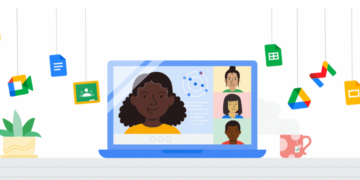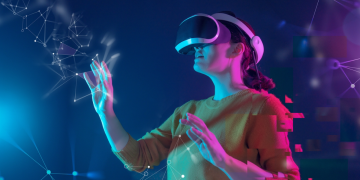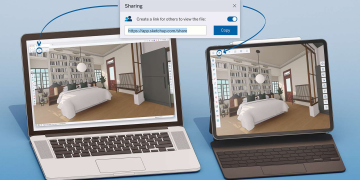At its core, hospitality has always been about making people feel welcome, comfortable, and looked after.
Whether you run a luxury resort or a small boutique hotel, the goal’s the same: preemptive service that feels effortless.
The difference today? We’ve got new tools helping us do it. And the biggest game-changer right now is AI in hospitality—not as a replacement for human service, but as a way to make it faster, more personal, and more consistent.
However, the artificial intelligence (AI) only works well if it is built on a well-engineered tech foundation. That’s where a capable IT services provider steps in—guiding integration, data strategy, scalability, and more, so AI can deliver results without disruption.
Guests Are Already Feeling the Shift
If you’ve stayed in a hotel recently, you might have noticed little changes. Your room’s ready the second you walk in.
You get a text confirming your dinner reservation without asking. The lighting and temperature are set just the way you like them.
That’s AI doing its thing. Not in some flashy, futuristic way—but quietly in the background, connecting dots from your booking history, travel details, and preferences.
The Behind-the-Scenes AI Work
Most of the magic with AI in hospitality happens out of sight. The guest just experiences things being smoother, but here’s what’s really going on:
- Housekeeping predictions – AI figures out which rooms need attention first, often using booking patterns or even flight data.
- Smarter upselling – Guests get offers that actually make sense for them, not random promotions.
- Quick answers, 24/7 – Chatbots or voice assistants can handle common questions instantly.
- Energy savings – Rooms adjust heating, cooling, and lights automatically when empty.
It’s personalization at scale—elevating guest experience and operational efficiency without burdening your team.
Why IT Support Makes or Breaks It
AI doesn’t just magically “plug in and work.” It has to connect with your booking systems, your payment processing, your in-room controls—all without breaking anything. That’s where a reliable IT services provider steps in.
They make sure:
- Your different systems actually talk to each other.
- Guest data is secure and in compliance with privacy rules (e.g. GDPR and CCPA).
- Tech runs smoothly 24/7, because guests don’t care if your server had a hiccup at 2 a.m.
- Software updates don’t accidentally knock out your booking system.
Without this infrastructure, AI can quickly shift from an advantage to a vulnerability.
What Guests Get Out of It
Done right, AI-supported hospitality feels deeply satisfying for the guest.
- Fewer waits – Check-ins are quick, room service comes faster, questions get answered instantly.
- Better recommendations – Guests get suggestions they actually want, not generic flyers under the door.
- Proactive fixes – AI can detect and resolve issues before the guest even notices them.
The smoother the experience, the more likely guests are to come back—or tell friends to stay with you.
It’s Not Just for the Big Brands
There’s a misconception that AI in hospitality is only realistic for big hotel chains. Not true. Many AI tools are now scalable and affordable for smaller properties.
A small inn can still use AI-driven booking to forecast busy weekends. A mid-sized resort can set up a simple chatbot to cut down on repetitive front desk queries.
The trick is starting small with the right tools—and having an experienced IT services provider configure them so they work with what you already have.
Things to Watch Out For
Like any new tech, AI comes with its own set of challenges:
- Training the staff – If your team doesn’t understand the tools, they’ll avoid them. Successful implementations require ongoing training and positioning AI as an aide, not a threat to existing roles.
- Integrations – Older systems might not easily connect to AI tools.
- Privacy compliance – Guest data has to be handled correctly, or you’re asking for trouble.
- Maintaining the Human Touch – Over-automation can make experiences feel cold or impersonal. Let AI handle repetitive tasks, while the staff delivers personalized, human interactions.
These are solvable issues—but they do need planning.
Looking Ahead
The real promise of AI in this industry is moving from reacting to anticipating.
Instead of waiting for a guest to say their AC isn’t working, sensors can flag it for repair before check in happens. Instead of offering an upgrade at the desk, AI can email the guest a personalized offer days before arrival based on guest preferences and booking patterns.
It’s that shift—thinking ahead instead of just keeping up—that will define the next level of guest experience.
Bottom Line
AI alone isn’t enough to transform a guest’s stay. But AI combined with a smart IT services provider? That’s where things start to get interesting.
Hotels that figure out how to marry human warmth with AI efficiency are going to win in the long run. Not because they have the flashiest tech—but because they’ll be the ones delivering the kind of service that feels effortless to the guest and sustainable for the staff.
And in hospitality, that balance is everything.






































